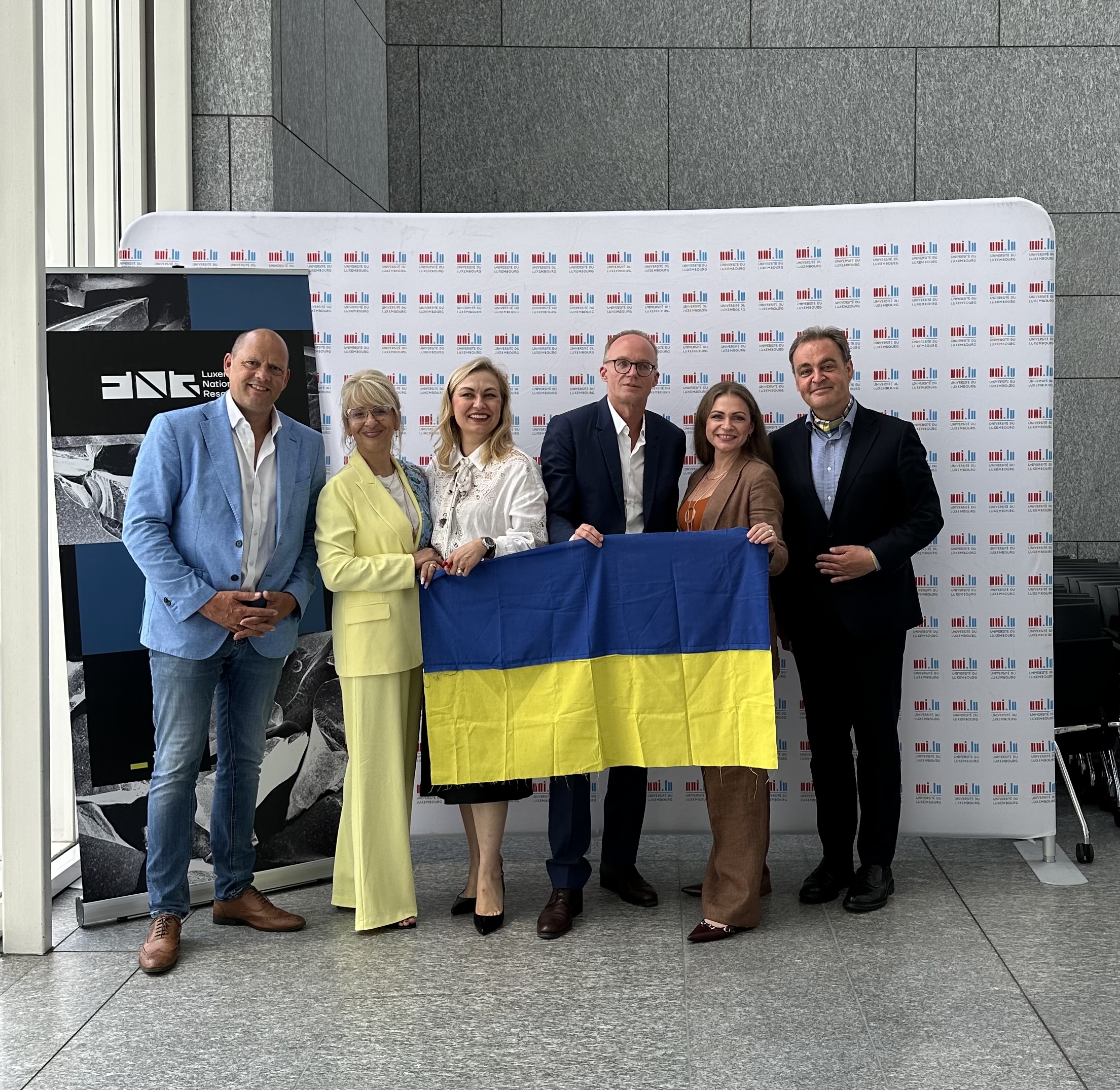As Ukraine pursues EU candidacy amid an ongoing war, the country’s legal scholars continue their work under some of the most difficult conditions. Kharkiv, home to Yaroslav Mudryi National Law University (NLU) – the biggest law University in Ukraine, lies just 30 kilometres from the Russian border. It takes only ten seconds for a missile to reach the city from Russia – often too little time to seek shelter. As across much of Ukraine, academic life has been fundamentally reshaped by missile strikes, power outages, and the displacement of staff and students. Yet research, teaching, and international cooperation continue.
Despite frequent attacks, the legal community in Kharkiv remains deeply involved in EU-aligned legal reforms. The EU Law Department at NLU focuses on harmonising Ukrainian legislation, contributing policy recommendations to the Ukrainian parliament, the Supreme Court, and other state bodies.
Support from European universities – such as the University of Luxembourg – plays an important role. Legal researchers and professors from both institutions have collaborated across a range of initiatives for many years, even before the war. These partnerships, built on longstanding professional relationships and shared research goals, are important for advancing Ukraine’s legal reform.
“We’re not just educators – we’re legal experts actively supporting legislative change in Ukraine,” says Professor Tetyana Komarova, Head of the EU Law Department at NLU.
When we speak with her, it is 9 a.m. in Kharkiv. She sits in a dark room. Her windows have been blown out by Russian attacks three times. Eventually, her family covered them up with plywood.
“We’re not made of stone. We’re afraid when the attacks come. But we have no choice. The only option is to keep going,” she says.
What helps researchers from NLU carry on is their sense of purpose and understanding that their knowledge is valuable – and needed – in building Ukraine’s future.
‟ Our research is part of Ukraine’s legal transformation. It’s not theoretical – it’s practical, and it’s urgent,”

Head of the EU Law Department at Yaroslav Mudryi National Law University (NLU)
says Tetyana.
Academic support
Partnerships with European institutions have helped Ukraine sustain both academic life and research. Although only around 15% of students remain in Kharkiv, teaching continues in reinforced classrooms equipped with internet access and digital tools. The rest of the student body participates remotely, from across Ukraine and abroad.
Since the start of the war, the University of Luxembourg has hosted several researchers from Ukraine, including one of Tetyana’s PhD students, what helped the student complete her research.
“Thanks to Stefan Braum, one of my PhD students was able to conduct research in Luxembourg and complete her PhD thesis,” Prof. Komarova says. “Opportunities like that allow our students to stay engaged and connected to the broader European academic community, even during wartime.”
In addition to individual support, Ukrainian scholars have taken part in lectures and seminars. It helps strengthen institutional knowledge-sharing and reinforce connections between Ukraine’s legal system and European norms. For example, last month, Prof. Komarova and her team joined a conference organised by Professor Stefan Braum, Chair of European and International (Economic) Criminal Law at the University of Luxembourg. It united legal academics from Ukraine and Europe to hear directly from Ukrainian researchers about how the war is affecting the country’s legal system, law administration, and education. They discussed concrete steps Ukraine has taken toward integrating its legal framework with the EU, and what remains to be done – both for Ukraine and Europe.

From left to right: Professors Georg Mein (Uni.lu), Olesia Tragniuk (NLU), Oksana Senatorova (NLU), Stefan Braum (Uni.lu), Tetyana Komarova (NLU) and Adam Lazowski (University of Westminster)
But it was not a discussion focused purely on academic exchange. Ukrainian researchers were able to share how they continue their work under wartime conditions – what it means to be a professor or a student in Ukraine today. “The conference was important – not just academically, but in reminding Europe about Ukraine,” Professor Komarova explains. “When a conflict lasts for years, attention starts to fade. But for us, it remains a daily reality. We wanted to show how we’re continuing as legal scholars, professors, and students under these conditions.”
The conference also covered human rights under martial law and the prosecution of child deportations and will contribute to a forthcoming special issue of “Critical Quarterly”, edited by Professor Braum.
“This volume will give Ukrainian academics a voice in the European discussion on war, sovereignty, and legal reform,” said Komarova. “It’s not just about the war – it’s about how we are moving on under these circumstances and how we are continuing to build democratic institutions in the middle of it.”
Beyond research, this academic collaboration with the University of Luxembourg has supported Ukrainian students’ participation in international legal competitions. With assistance from Prof. Braum and Research and Development Specialist Melina Anastasopoulou, who initiated a fundraising effort, students from Kharkiv were able to participate in the Telders International Law Moot Court Competition in Hague, Netherlands, where they placed among the top ten teams.
“Many of our students are studying from cities that are under daily attack. International experiences like moot courts are difficult to fund now, but they’re incredibly valuable,” Prof. Komarova says. “When Stefan saw we needed help, he didn’t wait for us to ask – he acted.”
Looking ahead
As Ukraine moves toward closer European integration, academic collaborations play a vital role in bridging gaps between legal systems and learning from one another. While researchers in Kharkiv and many other universities across the country have had to learn how to adapt to current circumstances, support and collaboration with colleagues – such as those from the University of Luxembourg – help them move forward.
“Luxembourg is at the heart of the EU,” says Prof. Komarova. “It’s a natural partner for us, both academically and in terms of our legal direction.” She believes future collaboration could include more student exchanges, co-authored research, and study visits.
And ultimately, the work of researchers and professors goes beyond academia. Many faculty members from Yaroslav Mudryi National Law University also serve as legal consultants to government agencies and courts, contributing to draft legislation and legal policy. Cooperation with, and support from, EU colleagues and partners helps them advance toward EU membership – and, hopefully, a lasting peace.
